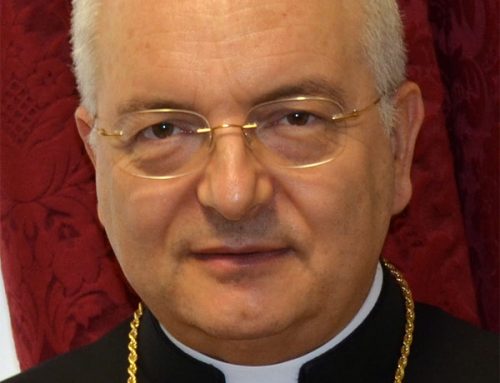Melkite archbishop of Aleppo, Syria, Jean-Clément Jeanbart,described Pope Francis’ speech to over 150 world leaders at the United Nations General Assembly as magnificent and worthy of in-depth analysis. In his speech Pope Francis boldly spoke out in defence of justice, the right of every person to a decent living, respect for human life and the environment and integral development. He condemned exclusion, degradation of the human beings, nuclear weapons and war.
Jean-Clément Jeanbart was particularly impressed by what Pope Francis said about war, which is an everyday reality and a source of great pain in Syria. He notes that the Pope’s discourse dealt with the subject of war from four angles:
Firstly, mentioning Syria by name, Pope Francis reiterated his “incessant appeals concerning the tragic situation throughout the Middle East” and spoke about the suffering inflicted on minorities, especially Christians “forced to witness the destruction of their places of worship, their cultural and religious heritage … [and] that they are confronted with the alternatives of either fleeing or paying with their own lives”.
The Pope called on international decision-makers to do everything in their power to prevent further systematic violence and examine their conscience, emphasising that what was at stake was not just “partisan interests,” but “real human beings … who weep, suffer, and die.” He believes that a political solution that can end the war in Syria can be reached through negotiation – a right recognized by the UN Charter that when applied realisticly “will obtain peaceful results”.
The need for effective action was emphasised, not merely discussion of strategies. World leaders must do more than indulge in a ‘bureaucratic exercise of drawing up long lists of good proposals — goals, objectives and statistical indicators … or [to think in terms of] “a single theoretical and aprioristic solution [that] will provide an answer to all the challenges.” At the same time the Pope spoke against an “ideological colonization by the imposition of anomalous models and lifestyles which are alien to people’s identity and, in the end, irresponsible”.
By action, Pope Francis meant negotiation which first of all necessitates an end to “the proliferation of arms … [and that requires] coordination among the members of the international community”. Any successful negotiation must also to take into account the feeble but crucial role of the countries directly involved
At this point Jean-Clément Jeanbart recalled the 258 letters of appeal sent by Syria to the head of the U.N. during the four years of the Syrian civil war, letters which were ignored and received no response because of undue influence exerted by the most influential countries. Jeanbart noted Francis’ insistence that “the limitation of power is an idea implicit in the concept of law itself. … [N]o human individual or group can consider itself absolute, permitted to bypass the dignity and the rights of other individuals”.

